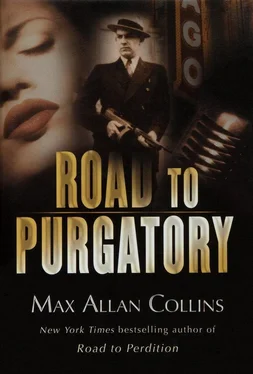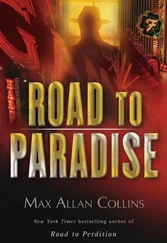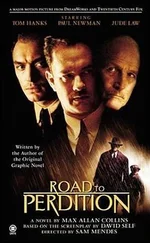“Let’s start with the recall effort,” Looney said, hands flat on the table. “Frank, what do you have for me?”
Kelly beamed, leaning back in his chair, arms folded. “We’ll have our people all through the Market Square rally tonight. Both speakers, Harry McCaskrin and Ed Gardner, will be demanding the mayor’s recall, and—”
“I want you to talk to them beforehand,” Looney said.
Frowning, Kelly removed his pocket watch and made a show of checking it. “The rally’s in less than an hour, John — what do you want me to talk to them about? ”
“I’ve made a decision,” Looney said. All faces turned toward him expectantly; what trick did the Old Man have up his sleeve this time? “Several prominent, highly respectable citizens have approached me, and I’ve decided to accept their draft.”
Reactions around the table were varied, starting with Kelly, whose face fell, as he said, “You want to run for mayor , John? Why in God’s name?”
Connor was smirking, Helen Van Dale laughing quietly to herself, her full bosom jiggling, Emeal Davis wearing no more expression than a cigar-store Indian.
“We all know Mayor Schriver has to go,” Looney said.
“No argument,” Kelly said. “But this recall passes, we can put in a puppet, and—”
“Why not save myself the trouble of pulling the strings? Frank, you know that I came to this town with political ambitions, only to be viciously quashed by the ruling class. Now I’m in a position to take the reins.”
“John,” the lawyer said, shaking his head, his voice oozing with friendly familiarity, “drumming Schriver out of office is well and good — but a man with your kind of power stays in the shadows... not the spotlight.”
“Pop,” Connor said, “don’t you think bein’ mayor would be kind of a... comedown?”
“I think it’s wonderful,” Helen Van Dale said, savoring her words. “John Looney has found the ultimate way to spit in Rock Island’s eye.”
Kelly was shaking his head again, the mop of gray hair losing its shape, locks drooping onto his brow. “John, I don’t know if McCaskrin will play ball.”
“He’s our man, isn’t he?”
“Yes, but he’s after the nomination for state attorney, and he’s a Republican. You’re a Democrat.”
“Thank you for reminding me, Frank.”
“Oh, I’m sure he’ll say nothing against you, and he’ll praise you as a good citizen... but endorse your candidacy? I think not.”
Looney shrugged. “Gardner’s a more fiery speaker, anyway. And he’ll jump at the chance to ally himself with us.”
Connor’s eyes and nostrils flared. “Pop! Gardner? You can’t be serious — the guy’s a goddamn socialist!”
“We’ll need the votes of both the socialists and the Democrats to swing it.” Looney turned to O’Sullivan, seated by a table next to a Tiffany-shade lamp, having backed away from its light into darkness. “Mike... join us, would you?”
And Looney gestured to the table.
Slowly, O’Sullivan rose and went to the chair next to Davis. Connor was frowning — having this bodyguard invited to the table where insiders made key decisions, surely galled Looney’s son. But it couldn’t be helped.
“I realize, Mike,” Looney said, “that these socialists stick in your craw.”
O’Sullivan said, “Not up to me, Mr. Looney.”
During the patriotic fever of 1917, socialists like Davenport newspaperman Floyd Dell and his radical writer pal John Reed had led antiwar efforts, preaching peaceful draft resistance and US neutrality. They and other socialists had been treated like traitors by the government.
But along the way, the socialists had become a viable political party, and right now, across the river, Davenport’s mayor was socialist, as were five aldermen and several other elected officials. In Rock Island, the socialists hungered to gain this side of the Mississippi, greedily coveting the mayor’s seat and various city commission seats.
“This has to rub you wrong, Mike,” Looney acknowledged, with a somber shake of his head.
O’Sullivan said nothing.
Connor said, “These socialists are a bunch of blow-hard rabble-rousers! Privileged-class intellectuals who never done an honest day’s work.”
O’Sullivan shrugged. “I can’t disagree with that. But could I ask a question?”
“Of course, Mike,” Looney said. “I want your opinions and advice — that’s why I asked you to sit down with us.”
O’Sullivan leaned forward. “Mr. Looney, surely you can’t respect a bunch of pacifists, who were against the Great War — can you?”
“Mike, me boy, I have no truck with pacifists; I believe a man has to stand and fight for what he believes is right, and that he must redress the wrongs committed against him.”
“As do I, sir.”
“And I respect you and the honor you brought on the Irish Catholic community with your valor.” Looney did not add what he really felt, for fear of truly alienating his top lieutenant: that what went on over there had been England’s war, not the war of a “Free Ireland!” rebel like John Looney.
Who said, “I’m a Democrat like you, Mike. And a capitalist — if you haven’t noticed by now that I’m a capitalist, then you just ain’t been paying attention.”
And O’Sullivan actually smiled at that. So did everyone else at the table.
“All around us workers are going out on strike,” Looney said. “And the unions’re on the rise. That’s good for us — we support the working man, because we want him to relax with the diversions we can offer him, after work... Right, Helen?”
Chuckling, she said, “Right, John.”
Suddenly Emeal Davis, looking sideways at the bodyguard, spoke, in his brooding baritone: “Mike, we make alliances. That’s how we can do what we do. And a lot of working stiffs these days vote socialist. Don’t kid yourself.”
Obviously not liking the sound of any of this, Frank Kelly, pale as a ghost, rose and said, “Well, I better get over there, and make our pitch. Are you willing to run as a socialist, John?”
“No need. It’s a recall ballot. My name will be listed, and that will be enough.”
Distractedly nodding to everyone, Kelly shuffled out.
Looney gave O’Sullivan a hard look. “What do you say, Mike?”
O’Sullivan said, “Mr. Looney, politics aren’t my calling. Anyway — you know I’d follow you into hell.”
“That I do know, son.”
Connor winced at “son,” and Looney immediately regretted using the word. But he was a man who spoke from his heart.
“Tonight, at that rally,” Looney said, “we’ll build support for my candidacy, and stoke the fires that already rage in Rock Island against this mayor.”
“Fueled by the News ,” Helen Van Dale said, puckishly. “I start all my fires with copies of the News .”
With a small smile, Looney cast his gaze on the madam. “Do you have more information for me, Helen?”
“If I didn’t, would that stop you? Wouldn’t you just put your most creative reporter in front of a typewriter and let him run wild?”
Helen could get away with this taunting because Looney had great affection for her; and because, next to him, she was the most powerful person in the Tri-Cities.
Much of the information that gave Looney’s scandal sheet, the Rock Island News , its unique leverage came from Helen, who was in a position (so to speak) to know the sins of various and sundry local men. Looney felt no shame for using his newspaper in a so-called “blackmailing” manner that rival publication the Argus had termed “a paper gun held at the heads of his victims.”
Читать дальше












